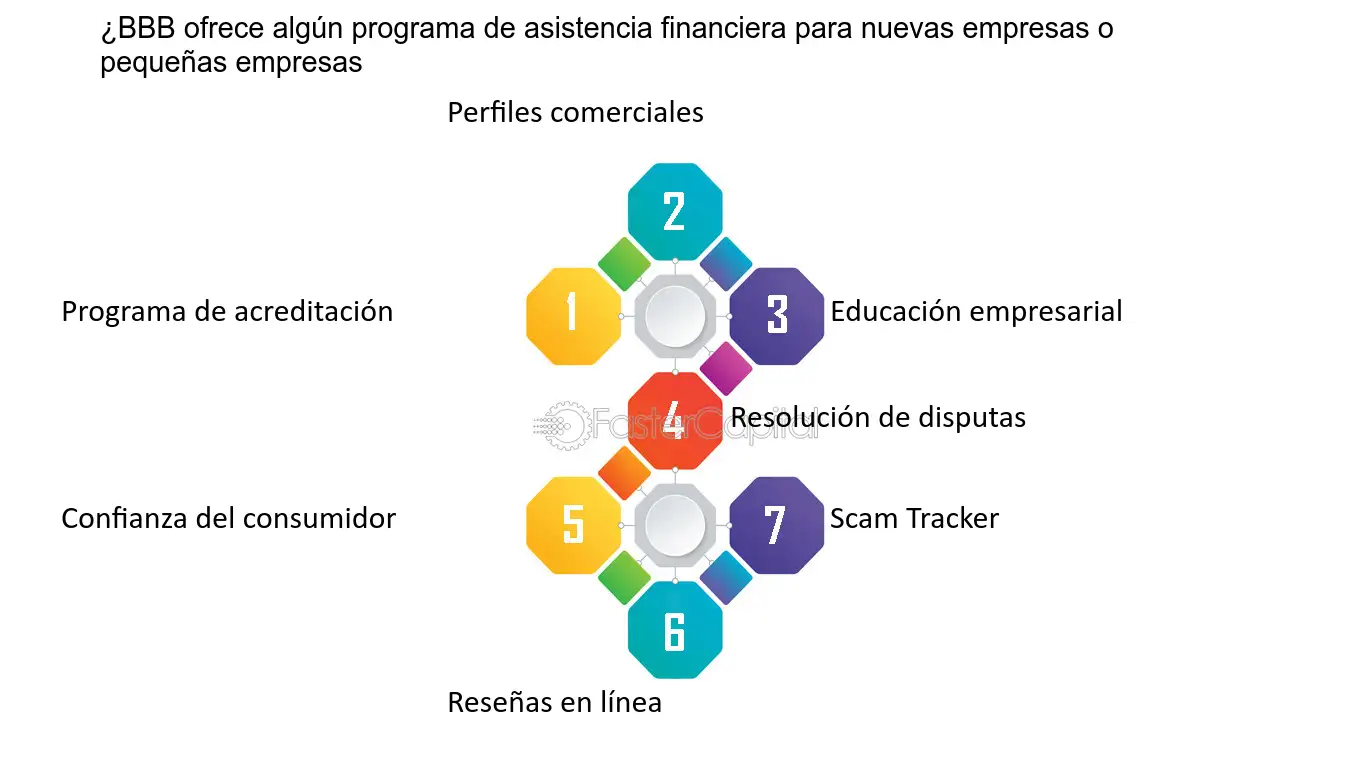BBB com Better Business Bureau: Ensuring Trust in the Marketplace
✅BBB (Better Business Bureau): Safeguarding trust and integrity in the marketplace, ensuring businesses and consumers thrive together.
The Better Business Bureau (BBB) plays a crucial role in establishing and maintaining trust between consumers and businesses. This organization provides a platform where consumers can file complaints, read reviews, and check the legitimacy of businesses. The BBB aims to foster an ethical marketplace where buyers and sellers can engage with confidence and mutual respect.
In this article, we will delve into the various functions and services provided by the Better Business Bureau, exploring how it aims to ensure trust in the marketplace. From its rating system to dispute resolution, the BBB offers a range of tools and resources that benefit both consumers and businesses alike.
What is the Better Business Bureau?
The Better Business Bureau is a non-profit organization that was established in 1912. Its primary mission is to advance marketplace trust by setting standards for ethical business behavior and monitoring compliance. The BBB consists of local organizations in the United States, Canada, and Mexico, making it a comprehensive resource for consumers across North America.
Key Services Provided by the BBB
- Business Ratings: The BBB assigns ratings to businesses based on various factors, including customer complaints, the length of time a business has been operating, and transparency in business practices.
- Complaint Resolution: Consumers can file complaints against businesses through the BBB. The organization mediates to resolve disputes and ensure both parties reach a satisfactory agreement.
- Accreditation: Businesses can apply for BBB accreditation, which signifies that they meet the organization’s standards for trust and integrity.
- Customer Reviews: The BBB allows customers to leave reviews about their experiences with businesses, providing valuable insights for other consumers.
How the BBB Rating System Works
The BBB rating system ranges from A+ to F, offering a clear and concise way for consumers to gauge a company’s reliability and ethical standards. Ratings are based on several criteria:
- Complaint History: The number and nature of complaints filed against the business.
- Business Type: The industry in which the business operates, as some industries are more prone to complaints than others.
- Time in Business: How long the business has been operating. Established businesses tend to have higher ratings.
- Transparency: The business’s willingness to provide clear and accurate information about its operations.
- Licensing and Government Actions: Any relevant government actions against the business.
Benefits of BBB Accreditation
Businesses that earn BBB accreditation can display the BBB seal, signaling to consumers that the business meets high standards of trust and integrity. Some of the key benefits include:
- Enhanced Reputation: Accredited businesses are often viewed more favorably by consumers.
- Increased Consumer Trust: The BBB seal can boost consumer confidence in a business’s reliability and ethical practices.
- Access to Mediation Services: Accredited businesses have access to the BBB’s mediation and dispute resolution services, helping to resolve customer complaints efficiently.
By offering these services, the Better Business Bureau plays an indispensable role in fostering a trustworthy and transparent marketplace. Whether you are a consumer seeking reliable information or a business looking to enhance your reputation, the BBB provides valuable resources to support your needs.
History and Evolution of the Better Business Bureau
Let’s delve into the History and Evolution of the Better Business Bureau (BBB) to understand how this organization has played a crucial role in ensuring trust in the marketplace over the years.
The Better Business Bureau was founded in 1912 with the mission to promote ethical business practices and self-regulation in the marketplace. Since its inception, the BBB has been a trusted resource for consumers looking to make informed purchasing decisions.
Initially, the BBB focused on resolving disputes between consumers and businesses. Over time, it expanded its services to include business accreditation, where companies voluntarily adhere to a set of standards set by the BBB. This accreditation signifies to consumers that the business is trustworthy and operates with integrity.
One of the key strengths of the Better Business Bureau is its commitment to transparency. The BBB collects and provides reliable information on businesses, including customer reviews, complaints, and ratings. This transparency empowers consumers to make educated choices when selecting products or services.
For example, a consumer looking to hire a contractor can visit the BBB website to check the accreditation status of a particular company, read reviews from other customers, and see if any complaints have been filed. This information helps the consumer feel more confident in their decision and promotes trust in the marketplace.
Through its evolution and adaptation to the digital age, the BBB continues to be a vital resource for both consumers and businesses. By upholding high standards of ethics and providing valuable information, the BBB plays a crucial role in ensuring trust in the marketplace.
How the BBB Accreditation Process Works
Understanding how the BBB Accreditation process works is crucial for businesses looking to enhance their reputation and build trust with consumers. The Better Business Bureau (BBB) has been a beacon of trust in the marketplace for over a century, providing consumers with valuable insights into the credibility and integrity of businesses.
BBB Accreditation is not handed out lightly; it is a rigorous process that signifies a business meets the highest standards of trust, honesty, and transparency. Here’s a breakdown of how the BBB Accreditation process works:
1. Application:
Businesses interested in becoming BBB Accredited start by submitting an application to their local BBB office. The application typically includes details about the business, its ownership, management, and any necessary background information.
2. Screening:
Once the application is received, the BBB conducts a thorough screening process to ensure the business meets the organization’s standards. This may involve checking for any unresolved customer complaints, adherence to advertising guidelines, and proper licensing and accreditation.
3. Compliance:
Businesses must comply with the BBB’s Standards for Trust, which include commitments to build trust, advertise honestly, tell the truth, be transparent, honor promises, be responsive, safeguard privacy, and embody integrity. Compliance with these standards is essential for accreditation.
4. Review and Decision:
After the screening and compliance phases are completed, the BBB reviews the information and makes a decision regarding the accreditation status of the business. If approved, the business becomes BBB Accredited and gains access to a wide range of benefits.
By going through the BBB Accreditation process, businesses demonstrate their commitment to integrity and customer satisfaction, which can lead to increased trust and credibility among consumers. This, in turn, can result in higher customer loyalty, improved reputation, and ultimately, increased business success.
Frequently Asked Questions
What is the Better Business Bureau (BBB)?
The Better Business Bureau (BBB) is a non-profit organization focused on advancing marketplace trust by evaluating businesses based on their ethical practices and performance.
How does the BBB rating system work?
The BBB rating system ranges from A+ to F, with A+ being the highest and F being the lowest. Ratings are based on various factors such as complaint history, transparency, and time in business.
Why is it important to check a business’s BBB rating?
Checking a business’s BBB rating can help consumers make informed decisions about which businesses to trust and engage with. A higher BBB rating indicates a more reliable and trustworthy business.
How can a business improve its BBB rating?
A business can improve its BBB rating by responding to customer complaints in a timely and effective manner, maintaining transparency in its operations, and upholding high ethical standards in its business practices.
Is the BBB accreditation necessary for a business to be trustworthy?
While BBB accreditation is not mandatory, it can demonstrate a business’s commitment to ethical practices and customer satisfaction. Accredited businesses are held to higher standards by the BBB.
How can consumers report a business to the BBB?
Consumers can report a business to the BBB by filing a complaint on the BBB website or contacting their local BBB office. The BBB investigates complaints to help resolve disputes between consumers and businesses.
Key Points:
- BBB is a non-profit organization focused on promoting trust in the marketplace.
- BBB ratings range from A+ to F and are based on various factors.
- Checking a business’s BBB rating can help consumers make informed decisions.
- Businesses can improve their BBB rating by addressing complaints and maintaining transparency.
- BBB accreditation is not mandatory but can enhance a business’s reputation.
- Consumers can report businesses to the BBB to help resolve disputes.
Feel free to leave your comments and check out other articles on our website that may interest you!







